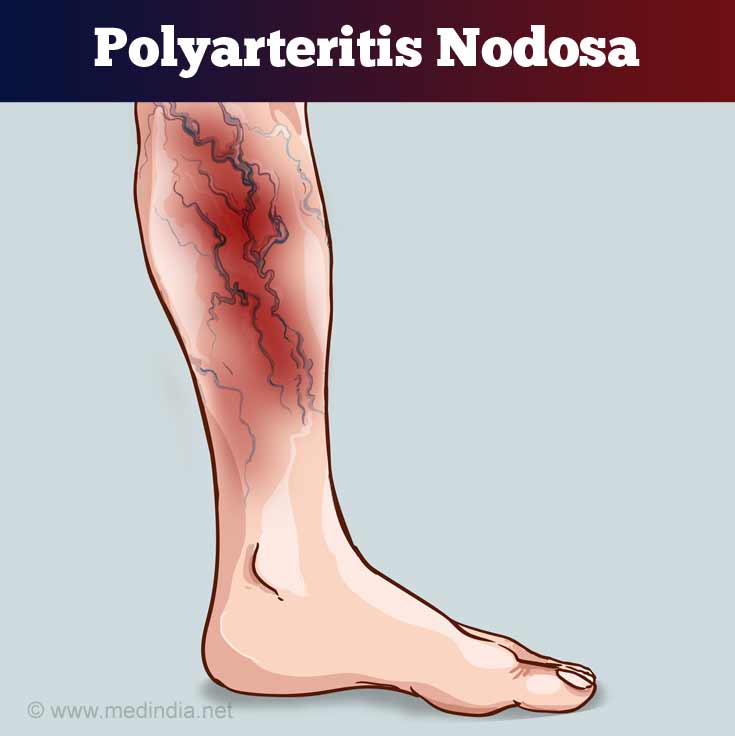- Cecil Medicine, 23rd Ed.
- The Merck Manual, 18th Ed.
About
Polyarteritis Nodosa (PAN) is a vasculitis that typically affects medium-sized muscular arteries. Most cases are idiopathic, i.e. arise from an unknown cause.
Polyarteritis Nodosa (PAN) is a vasculitis that typically affects medium-sized muscular arteries. Vasculitis refers to inflammation of blood vessels. In PAN, the smallest blood vessels (arterioles, venules, and capillaries) are spared. Though any organ (except the lungs) can be affected, the most commonly involved ones are: kidneys, skin, joints, muscles, peripheral nerves, and digestive tract.
Patients may experience general symptoms like fever and fatigue. Specific symptoms vary depending on which organ is affected. The classic digestive system manifestation of polyarteritis nodosa is “intestinal angina,” i.e. severe abdominal pain following meals. Diagnosis is made with the help of biopsy or arteriography. Corticosteroids and immunosuppressants serve as effective treatments.

PAN is a rare disease that chiefly affects middle-aged adults, but it can occur at any age. The incidence increases with age. The exact cause of the disease is unknown; a basis of immune mechanisms has been suggested. Most cases are idiopathic, i.e. arise from an unknown cause. About 20% of patients have hepatitis B or C. Drugs may be a cause. Patients with conditions like certain lymphomas and leukemias, rheumatoid arthritis, or Sjögren's syndrome may suffer a systemic vasculitis similar to PAN.







